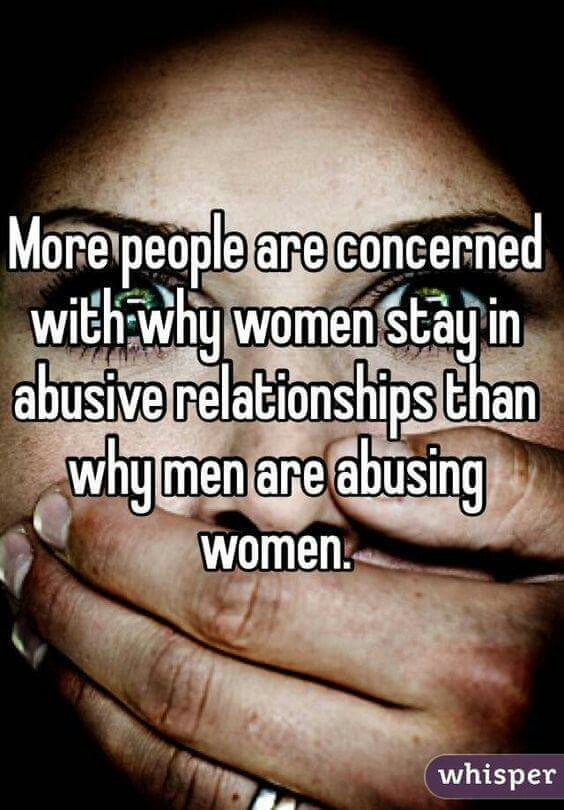By Linda A. Osmundson
Slapping, hair-pulling, kicking, biting…battered women relate a litany of abuse experienced at the hand of our intimate partners. The results are bruises, broken bones, black eyes, internal injuries, sometimes and death. Always there are broken hearts.
Yet, most battered women really do not want to leave their abusive partners. Many of the women who call shelter crisis lines tell the staff and volunteers that they just want the abuse to end. We hope for fantasy TV endings like the lives of Claire and Heathcliff Huxtable or Ward and June Cleaver.
So why do we stay? When the person who had promised to love and cherish us beats us, what makes us stay for the second and third beating? When I speak to community groups about domestic violence, I am nearly always asked this question. Often women in the audience would exclaim, “if my partner laid a hand on me, I would be out the door!”
Imagine, for a moment, your own family. Would you really be able to walk out the door? Could you leave your home, neighborhood and friends? Where would you go? Could you, your two lively children, plus the dog, stay at your brother’s apartment on his couch for an indefinite period of time? What would his two roommates have to say about that? Could you stay with your parents who live in one of those adults-only condos?
I would not be surprised if the first time it happened you would help your partner rationalize why it happened. Your partner was (tired, stressed, angry, drinking, jealous, upset about losing a job or worried about expenses). Any excuse will fill the blank! YOU (made a mistake, came home late, disagreed with your partner, bought lunch at the mall….) fill this blank with the reason your partner says you caused the abuse.
But abuse is not about reason. It is about power. It is about control of one’s partner. And it works. The physical abuse is only the most obvious. It is reinforced by a whole spectrum of other kinds of abuse. We’ve already mentioned the excuses, the minimizing and blaming, saying it was her fault or it really wasn’t that serious. Abusers isolate their victims and keep them from having friends or family around. They control what we do, who we see, what we read and where we go.
Abusers abuse our psyche and emotions by calling us unprintable names, humiliating us, constantly criticizing us.
Abusers are intimidating. I knew an abuser who left a single bullet on the kitchen counter! It takes only a look, a threat, to instill fear. Abusers are coercive, threatening to leave, forcing us to participate in illegal activities. Abusers make sure we have no money, keep us from getting a job, making us put our check in to their account. Abusers treat their partners like servants, acting like “master of the castle,” making all the important decisions.
Finally, abusers use the children by making us feel guilty about them, threatening to take the children, using the children to relay messages to their mother.
Abuse works because many of us continue to pretend it does not happen to “good” women. So anyone who is abused must be “bad”! We blame the victim for her own abuse by calling her codependent. We expect her to prevent the abuse instead of why the abuser chose to abuse. In short, we collude with the abuser.
Abusers succeed because they are not abusive all the time. In fact, sometimes they are fun and charming. They are almost always charming around other people.
Battered women stay because we are afraid. We are afraid no one will believe the truth. We fear we will lose our children. We are afraid we will have nowhere to go. We are fearful we will not be able to support the children. We are afraid our church or family will condemn us. We are terrified the abuser will hurt our friends or family. Ultimately, we fear we will be killed trying to leave.
All these fears are legitimate. Most battered women, killed by their abusers, have tried to leave. Some die in the process of leaving and many are killed trying to start over. The blood of millions of battered women is on the hands of friends and families, social workers, clergy, doctors, police, attorneys, judges and anyone else who failed to believe them, failed to heed their pleas for help.
Maybe we should reverse that question, “why does she stay?” and ask, “So why does the abuser abuse?” With all the obstacles in our path the real question is, “How can we possibly leave?”
NCCADV

